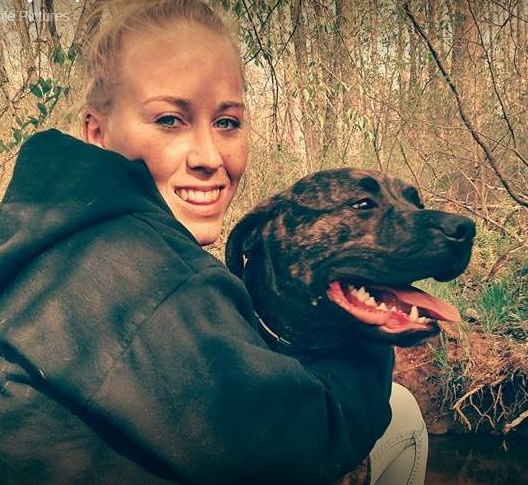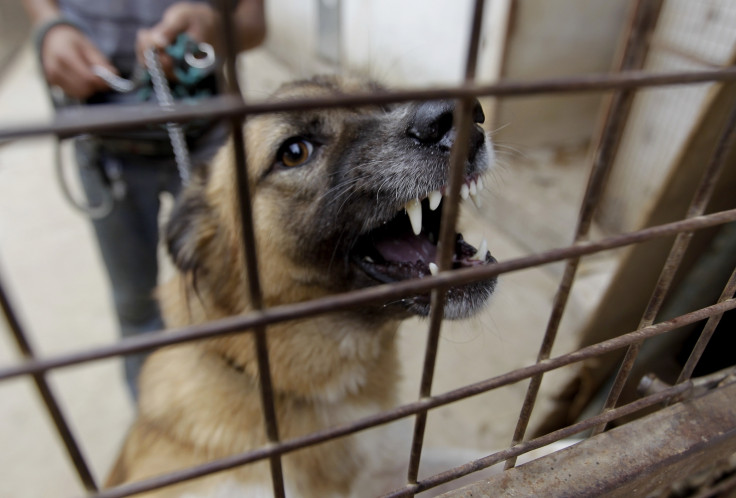Why does man's best friend turn against him? Dog experts offer explanations
Animal lovers were shocked when two pit bulls dogs mauled their owner to death in Virginia.

Animal lovers and pet owners were shocked by the recent attack on a woman by her dogs. The body of 22-year-old Bethany Lynn Stephens of Virginia was found in a wooded area near her house, a day after she went missing while out for a walk with her two pit bulls.
Authorities said that the "large, brindle-coloured" dogs were found "eating the ribcage of the body" when they came across it.
The gruesome incident has triggered a debate as to why pet dogs would suddenly attack their owner in such a ferocious manner, especially as she had raised them since they were pups. There are conflicting accounts regarding how the dogs had been treated. While friends claim Bethany was affectionate in her care, Goochland County, Virginia, Sheriff's Sgt. Mike Blackwood alleges they were neglected and "became more isolated where the only contact they had was with each other".
While pit bulls are recognised as a highly aggressive breed, they are also known to forge strong bonds with their owners and such a drastic change of behaviour is unusual.
"We just don't have enough information to understand why these two dogs turned on this owner," Richard Polsky, an animal behaviour and dog-bite expert in Los Angeles told Live Science.
However, most of the possible reasons given for the attack are based on regular canine aggression and not particular to this level of hostility.
Polsky presumes an external trigger may have caused the two pit bulls to attack Bethany. "The dogs may have been thwarted in doing something, got frustrated and turned around and attacked the owner," he said.
Sean Wensley, Senior Veterinary Surgeon at the People's Dispensary for Sick Animals (PDSA) opined that they may have been threatened in some way. "The motivation for lots of dog bites is fear," he told BBC. "Others are territorial - if they're guarding something that they highly value, or defending their favourite resting place, their bed... Or if they've learned to defend, say, a dog bowl - that can result in aggression."
Ron Berman, a dog-bite expert and certified forensic consultant suggested that the pets may have not been treated well and were possibly underfed. He pointed out that dogs will not typically eat a human after attacking it, unless they are hungry.
Marjie Alonso, executive director of the International Association of Animal Behavior Consultants believes a "perfect storm of events" would be required to cause the attack. Liz Stelow, a clinician at the veterinary school at the University of California at Davis told The Washington Post that from her experience, fear is most often the reason behind such aggression.
"Everything I've read about the case suggests that what likely happened is there was a triggering event, and the dogs either turned on each other and she became involved, or they turned on her because of something that happened, some external stimulus that happened," she said.
Aggressive behaviour in dogs
There are multiple types of aggression in dogs — territorial, protective, possessive, fear, defensive, social, frustration-elicited, redirection, pain-elicited, sex related and predatory.
Celebrity Mexican-American dog behaviourist Cesar Millan believes that it is incorrect to blame a specific breed for aggressive behaviour. "The difference between an aggressive Chihuahua and an aggressive pit bull is that the bigger breeds can cause proportionately bigger damage," he says on his website.
According to him, aggressive dogs require adequate exercise. "Dog exercise burns the dog's excess energy and helps maintain the dog's healthy state of mind. This is important because, in order to talk to the mind, you need to remove the energy from the body," the Ceasar's Way site mentions.

How to manage a dog with aggressive behaviour?
Visit a vet
A sudden change in your dog's behaviour could indicate an underlying medical problem. Take your pet to a veterinarian to identify if the change is triggered by a disease. The doctor can prescribe medication to target the particular issue.
Get an experienced trainer
If the issue cannot be attributed to a health issue, hire a professional dog trainer or behaviourist to work with you and your pet and create a plan to manage your dog's aggression.
Identify the trigger
Considering there are various types of aggression in dogs, it is important to identify what triggers this sort of behaviour in your pet. You might not be able to block out all triggers but you can find ways to help your dog deal with them.
Avoid stressors
If your dog does not like children, make sure to keep him away from them. If he is extremely territorial, make efforts to spend time with him in other areas.






















